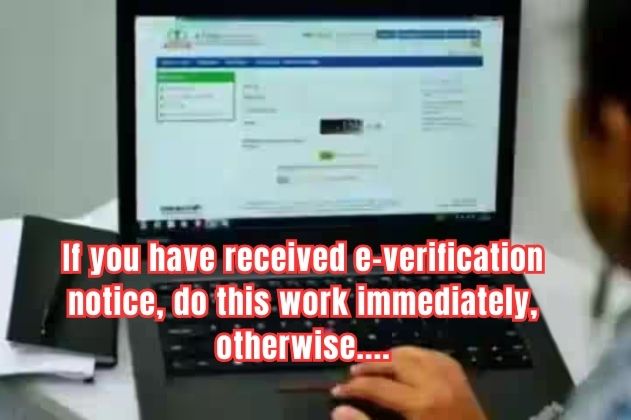Along with the month of March, the last week of the current financial year (FY23) has arrived. In such a situation, most of the taxpayers are busy in making the last effort to save tax. Many taxpayers are collecting tax saving documents to file ITR.
Meanwhile, a big news related to income tax has come to the fore. The Income Tax Department has selected thousands of cases for Income Tax E-Verification. Many taxpayers are being asked to reply to this by sending notices, which has increased the concern of taxpayers. In such a situation, it is important to know what is e-verification and what should be done about the notice received in this regard.
Notice received due to
First of all, let us tell you that the Income Tax Department has selected 68,000 cases for e-verification for the financial year 2019-20. It is alleged that in such cases huge income has been hidden or understated in the income tax return ie ITR. These transactions are both personal and corporate. A difference has been found in their Annual Information Statement (AIS) and Income Tax Return. AIS contains all the accounts of the financial transactions of the taxpayer. Things like bank deposits and share buying and selling are included in this.
Action is taken in this situation
Out of 68,000 cases selected for e-verification, about 56 per cent i.e. 35,000 cases, taxpayers have responded to notices or filed updated returns. No response has come in the remaining 33,000 cases. For FY2019-20, if the taxpayer does not file an updated return (Updated ITR) by March 31, 2023 or does not respond to the notice, then the Income Tax Department can take action. So far, about 15 lakh updated returns have been filed and tax of Rs 1,250 crore has been received from them.
Do reply to the notice
The purpose of the e-Verification Scheme, 2021 is to match the information received from the financial institutions with the information given in the ITR by the taxpayers. The e-verification process starts when a mismatch is found in a financial transaction. The notice under section 133(6) is sent to the taxpayer electronically through the compliance portal. He is asked for an explanation or proof for not showing this transaction in the return. The taxpayer has to answer on the compliance portal itself. The department will either be satisfied with the reply or ask to update the return.
What should I do after receiving the notice?
The notice sent under the e-verification scheme will be visible on the compliance portal. Its alert is also sent on the registered mobile number and e-mail address. After receiving the notice, you will have to log in to the income tax portal (https://eportal.incometax.gov.in/). After this, go to the ‘Pending Actions’ tab and click on ‘Compliance Portal’ and select ‘eVerification’. Then click on Financial Year. To download the notice, click on the Document Identification Number (DIN). To answer, click on the ‘Submit’ link and attach the relevant documents and click on the submit button.
Ways to avoid action
If you have received e-verification notice for the financial year 2019-20 i.e. assessment year 2020-21, then reply to the notice or fill the updated return by March 31, 2023. If the notice has not been received, but you have forgotten to show any income or have not filed the original return, you can still file the updated return by paying additional tax.
Updated returns can be filed up to 2 years after the end of the relevant assessment year. Additional tax equal to 25 per cent of the tax and interest will have to be paid if the updated return is filed within 12 months. Similarly, after 12 months and before 2 years, 50 percent additional tax will have to be paid for submitting the updated return. Updated returns can be filed by March 31, 2024 for assessment year 2021-22 and by March 31, 2025 for assessment year 2022-23.
Be sure to keep these things in mind
If you want to avoid e-verification notice in assessment year 2021-22 or subsequent years, file an updated return if there is a discrepancy by matching AIS and ITR. The updated return for the relevant assessment year can be filed only once. There is absolutely no scope for mistake, for this you should take the help of a tax advisor or CA.
Do not confuse between e-verification and e-verification of income tax return. These two are different things. Before filing the return, do check the AIS so that there is no mistake while filing ITR and there is no need to file updated return.















